Browse the Collection
Browsing 17 items in our archive
-
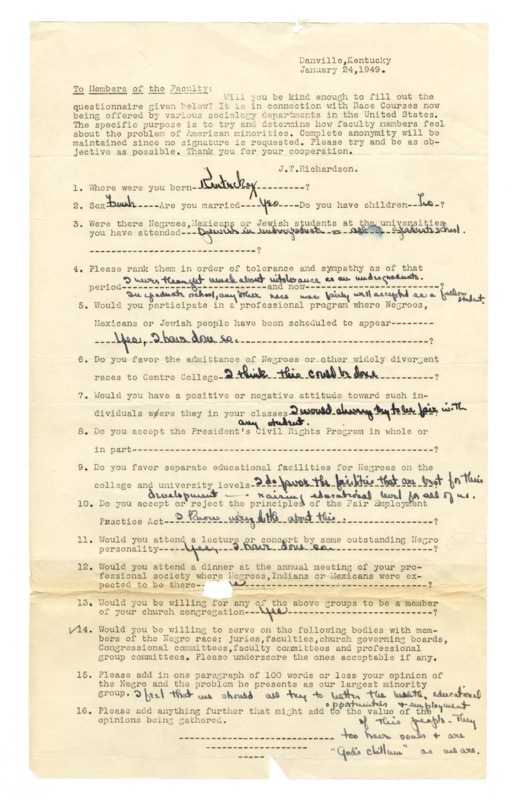 Centre College | Text
Centre College | TextAmerican minorities faculty questionnaire (1)
Anonymous responses to a questionnaire distributed to Centre College faculty January 24, 1949, the stated purpose of which was "to try an determine how faculty members feel about the problem of American minorities."Learn more -
 Centre College | Text
Centre College | TextAmerican minorities faculty questionnaire (10)
Anonymous responses to a questionnaire distributed to Centre College faculty January 24, 1949, the stated purpose of which was "to try an determine how faculty members feel about the problem of American minorities."Learn more -
 Centre College | Text
Centre College | TextAmerican minorities faculty questionnaire (11)
Anonymous responses to a questionnaire distributed to Centre College faculty January 24, 1949, the stated purpose of which was "to try an determine how faculty members feel about the problem of American minorities."Learn more -
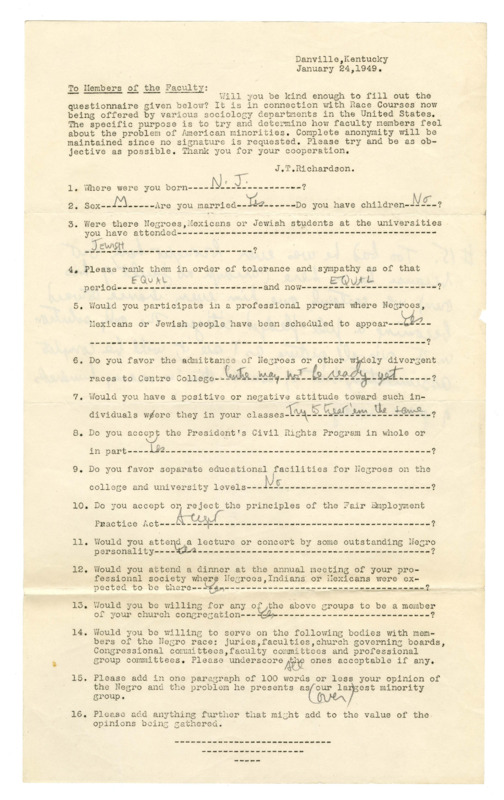 Centre College | Text
Centre College | TextAmerican minorities faculty questionnaire (12)
Anonymous responses to a questionnaire distributed to Centre College faculty January 24, 1949, the stated purpose of which was "to try an determine how faculty members feel about the problem of American minorities."Learn more -
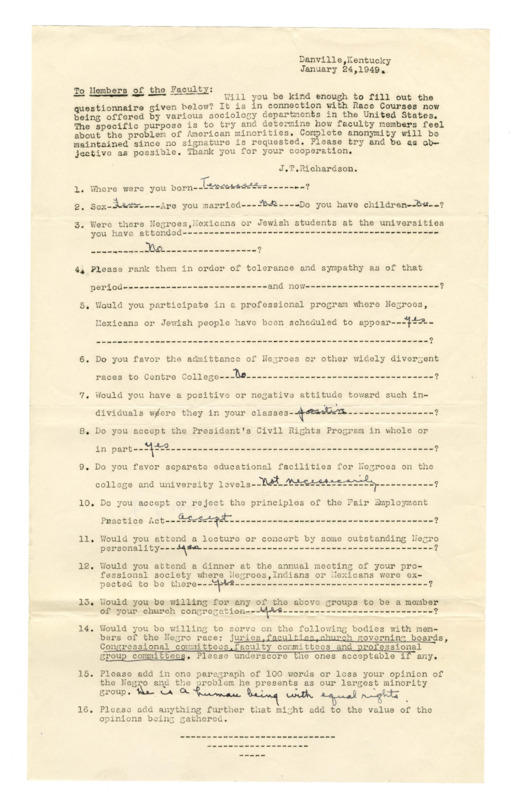 Centre College | Text
Centre College | TextAmerican minorities faculty questionnaire (2)
Anonymous responses to a questionnaire distributed to Centre College faculty January 24, 1949, the stated purpose of which was "to try an determine how faculty members feel about the problem of American minorities."Learn more -
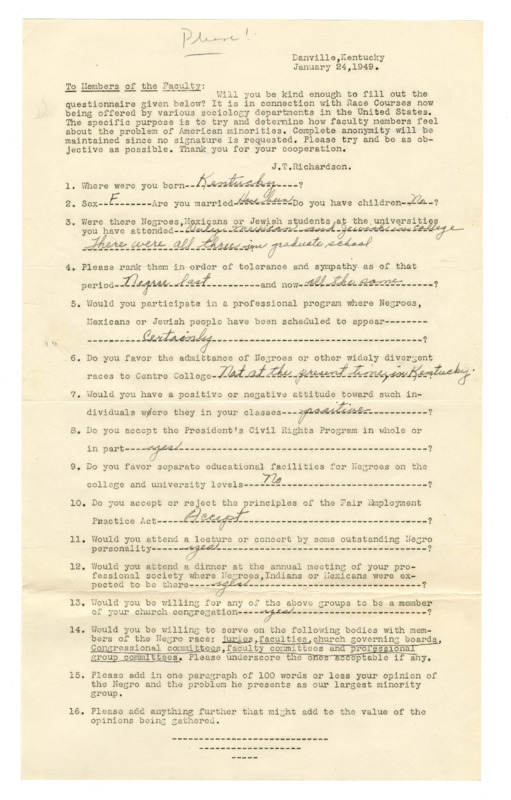 Centre College | Text
Centre College | TextAmerican minorities faculty questionnaire (3)
Anonymous responses to a questionnaire distributed to Centre College faculty January 24, 1949, the stated purpose of which was "to try an determine how faculty members feel about the problem of American minorities."Learn more -
 Centre College | Text
Centre College | TextAmerican minorities faculty questionnaire (4)
Anonymous responses to a questionnaire distributed to Centre College faculty January 24, 1949, the stated purpose of which was "to try an determine how faculty members feel about the problem of American minorities."Learn more -
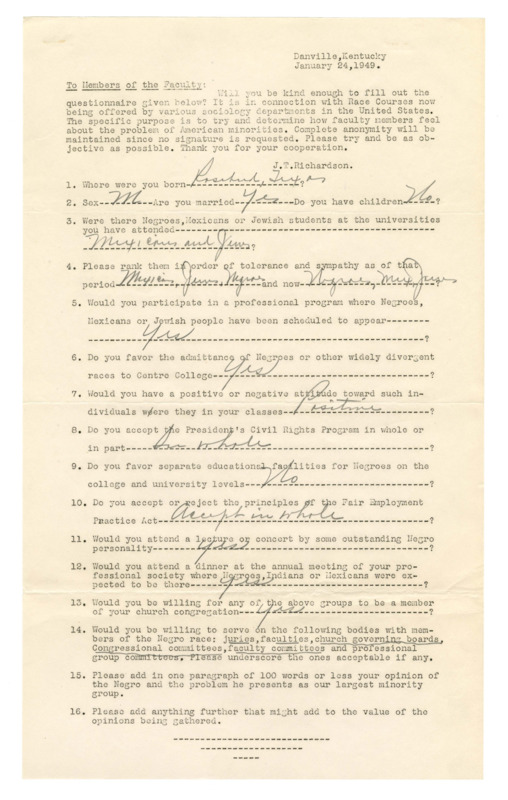 Centre College | Text
Centre College | TextAmerican minorities faculty questionnaire (5)
Anonymous responses to a questionnaire distributed to Centre College faculty January 24, 1949, the stated purpose of which was "to try an determine how faculty members feel about the problem of American minorities."Learn more -
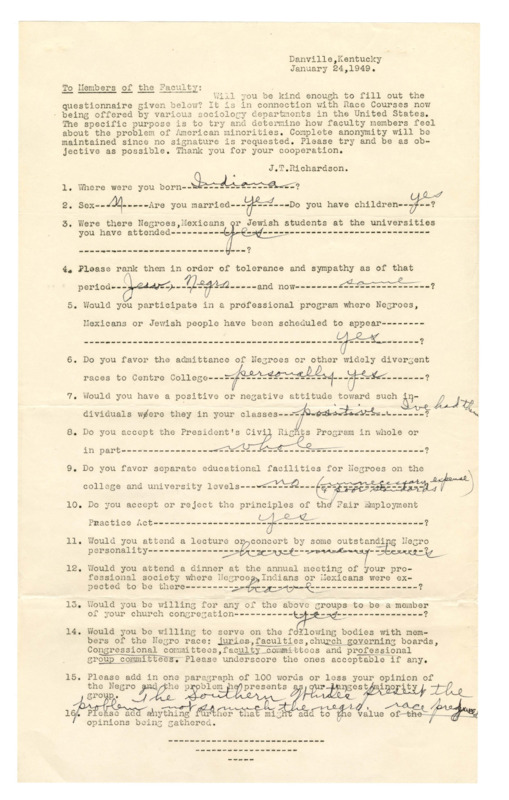 Centre College | Text
Centre College | TextAmerican minorities faculty questionnaire (6)
Anonymous responses to a questionnaire distributed to Centre College faculty January 24, 1949, the stated purpose of which was "to try an determine how faculty members feel about the problem of American minorities."Learn more -
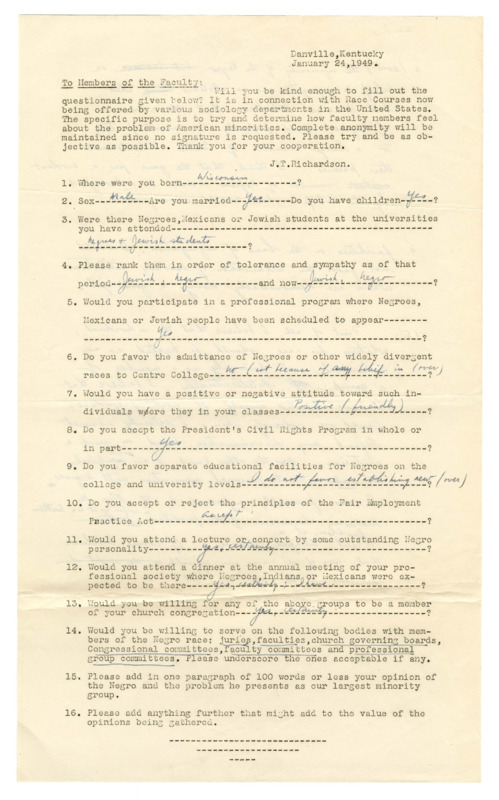 Centre College | Text
Centre College | TextAmerican minorities faculty questionnaire (7)
Anonymous responses to a questionnaire distributed to Centre College faculty January 24, 1949, the stated purpose of which was "to try an determine how faculty members feel about the problem of American minorities."Learn more -
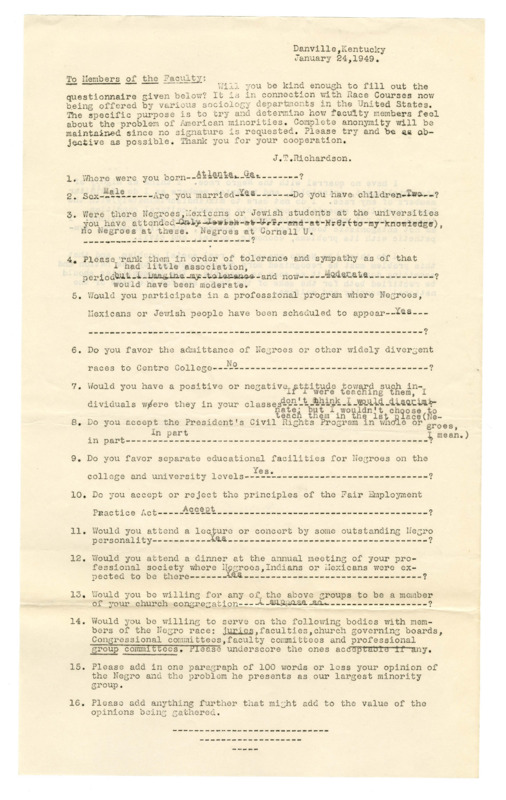 Centre College | Text
Centre College | TextAmerican minorities faculty questionnaire (8)
Anonymous responses to a questionnaire distributed to Centre College faculty January 24, 1949, the stated purpose of which was "to try an determine how faculty members feel about the problem of American minorities."Learn more -
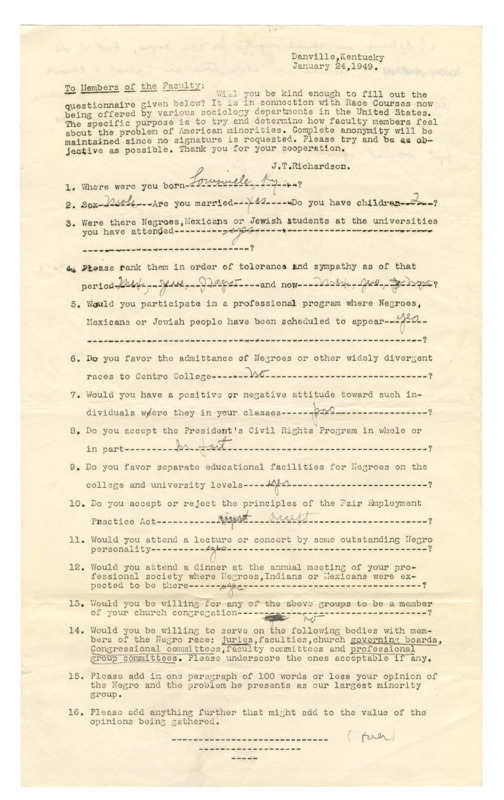 Centre College | Text
Centre College | TextAmerican minorities faculty questionnaire (9)
Anonymous responses to a questionnaire distributed to Centre College faculty January 24, 1949, the stated purpose of which was "to try an determine how faculty members feel about the problem of American minorities."Learn more -
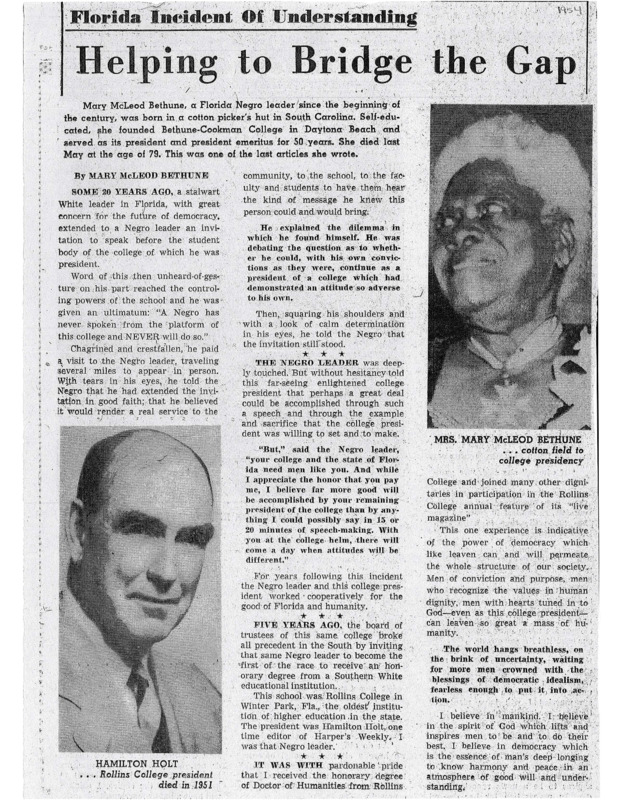 Rollins College | Text
Rollins College | TextHelping to Bridge the Gap
This article, written by Mary McLeod Bethune, discusses her friendship with President Hamilton Holt. It outlines the path of acceptance of African Americans at Rollins College, and her hope for further acceptance and integration in the future. Circa 1955-1956Learn more -
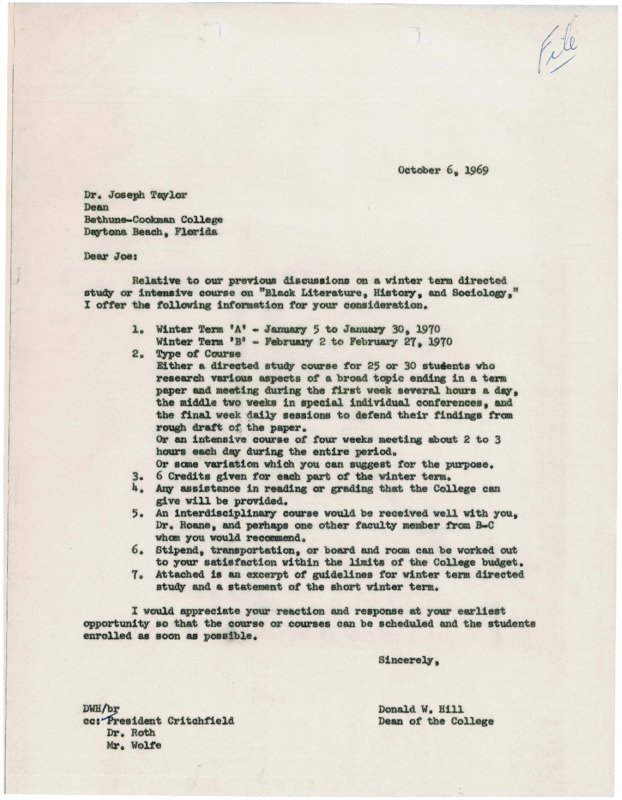 Rollins College | Text
Rollins College | TextLetter from Donald W. Hill to Joseph Taylor, 1969
The administration responds to student demands for more Black studies by creating a winter term course on "Black Literature, History and Sociology." The Dean of Rollins College consulted the Dean of Bethune-Cookman College on the structure and content of the course, demonstrating continued cooperation between the two institutions.Learn more -
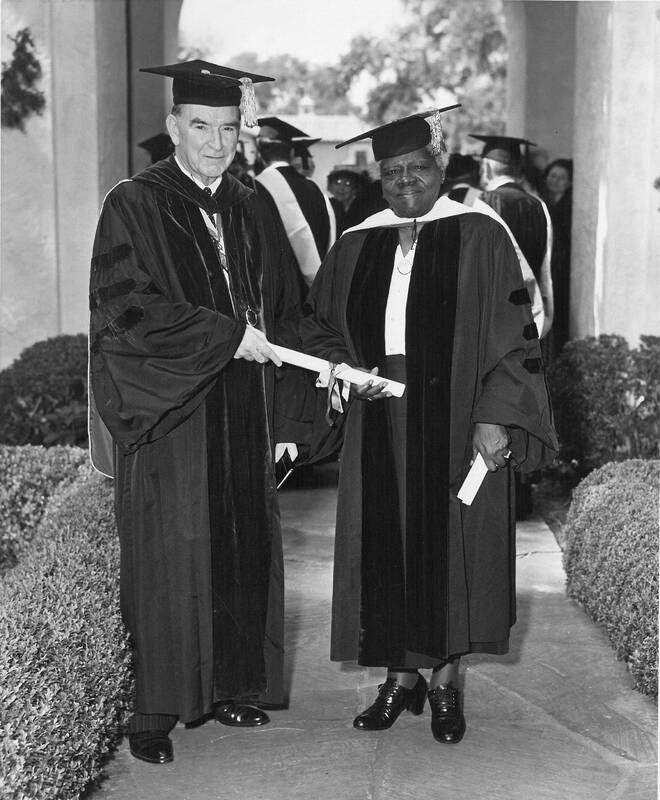 Rollins College | Image
Rollins College | ImageMary McLeod Bethune Receives an Honorary Degree from Rollins, 1949
Hamilton Holt awarding Mary McLeod Bethune, President Emerita of Bethune-Cookman College, with an honorary degree of Doctor of Humanities.This is the first honorary degree given to an African American by an institution of higher education in the South.Learn more -
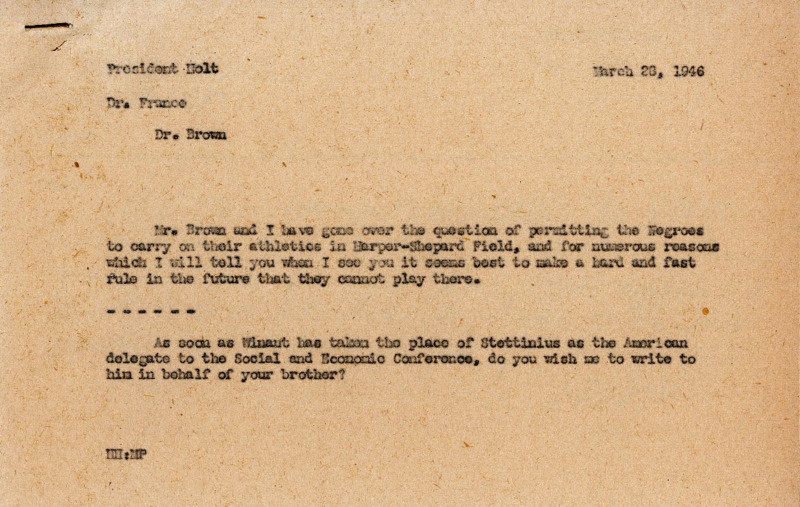 Rollins College | Text
Rollins College | TextMemo from Hamilton Holt to Royal France, 1946
In a memo to Prof. Royal France, President Holt and Treasurer E. T. Brown recommend that no African Americans should be permitted to use the Harper-Shepherd Field while it is not being used by Rollins College. The message shows that the college is trying to determine its position on involvement with local African Americans and their ability to be on Rollins- owned grounds.Learn more -
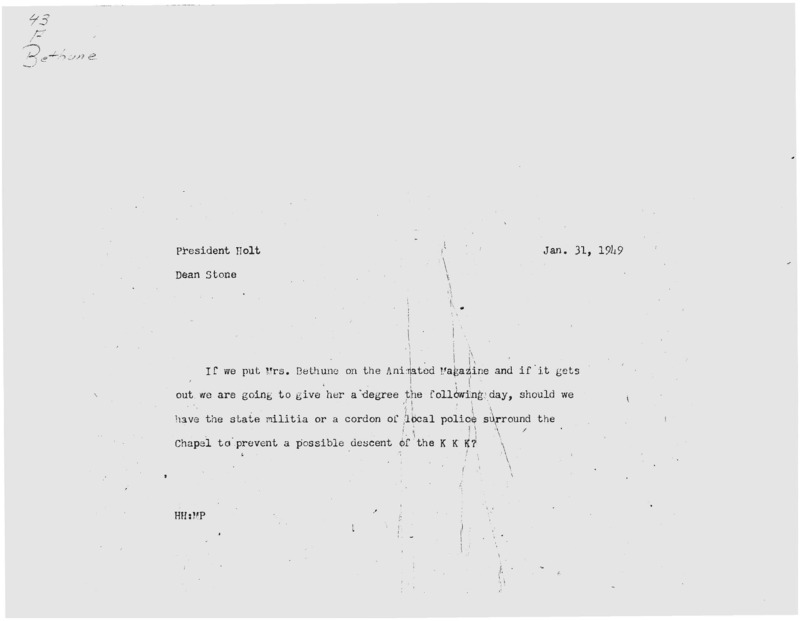 Rollins College | Text
Rollins College | TextMemorandum from Hamilton Holt to Dean Wendell Stone, 1949
Hamilton Holt expresses concern that the announcement of Mary McLeod Bethune's honorary degree would cause protesting and interference from the KKK. His fears proved to be unfounded, but facing violence was a real possibility.Learn more
